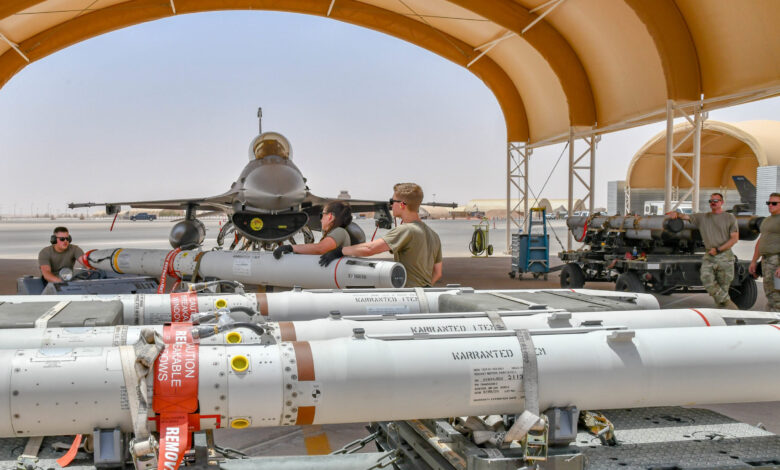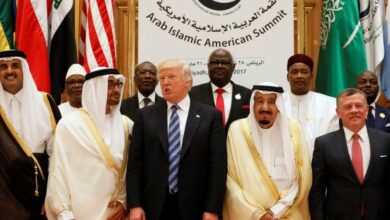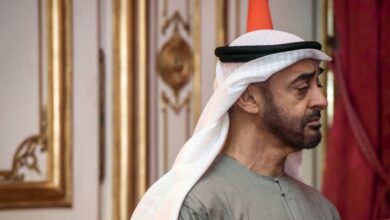Lobbying, Weapons Dealing and Military Cooperation — US‑UAE Relations and Israel’s Crucial Role

Introduction
The United States (US) and the United Arab Emirates (UAE) share what is often described as one of the most durable strategic partnerships in the Arab world. Since their formal ties began in 1971, cooperation has expanded across defense, trade, intelligence, and regional policy. But beyond bilateral deals, there is a hidden architecture of influence: the UAE’s lobbying in Washington, arms acquisitions, and military cooperation depend heavily on support from Israel’s political and diplomatic networks.
Building the Emirati Lobby
One foundational element in UAE’s Washington strategy has been the creation and growth of a sophisticated lobbying apparatus. Central figures like Ambassador Yousef al‑Otaiba have orchestrated hiring of major US PR and legal firms, major think tanks, and policy influencers. According to analysis of UAE‑registered agents under the Foreign Agents Registration Act (FARA), many lobbying efforts explicitly link the UAE’s arms requests to the normalization narrative with Israel.
Israel’s participation in these narratives is not incidental. Through formal ties like the Abraham Accords, Israeli government and civil society actors amplify UAE’s arguments in Washington: that the UAE is a reliable partner in regional security, counterterrorism, and as a counterweight to Iran. This joint positioning has opened doors for UAE in Congress and in arms‑sales decision‑making.
Weapons Dealing & Military Cooperation
From 2017 to 2021, more than 60% of these UAE weapons imports came from the US. Highly advanced systems, including air defense, drones, and possibly F‑35 jets, have been part of large sales packages. Lobbying efforts use the Israel‑UAE normalization as proof of geopolitical alignment — helping mitigate congressional concerns about proliferation, misuse, or instability.
Israel’s own lobbying clarifies to US decision‑makers that the UAE is not a rogue buyer but a partner in shared strategic goals. Without Israeli backing, the pace and scope of UAE’s arms deals would likely face more resistance. For example, US legislators often ask how new weapon sales affect Israel’s qualitative military edge — Israeli labs, think tanks, and political voices then step in to assure or negotiate those concerns away, citing UAE‑Israel cooperation and shared threat perceptions.
A Case Study: The Abraham Accords & F‑35 Lobby
Perhaps the clearest example is the 2020 deal under which the Abraham Accords were signed. As part of that deal, the UAE sought to acquire F‑35 aircraft. Opposition in US Congress came from concerns about Israel’s advantage and oversight. Emirati lobbyists, legal teams, and PR firms leveraged the fact of normalization with Israel to assert the UAE’s reliability, its alignment with US and Israeli security goals, and its role as regional stabilizer. Israel’s support was central — its own intelligence and defense officials often publicly or privately approving parts of the deal, helping frame the story to Congress and US media. Without that Israeli imprimatur, opposition would have been much stronger.
Israeli Lobbying Helps Shield UAE and Amplify Its Power
Israeli civil society, media, and political actors often act as amplifiers for UAE positions. When UAE is criticized for its military role in Yemen, Libya, or accusations of human rights abuses, Israeli support helps to deflect, reframe, or diminish concerns. The shared narrative of “countering Iran,” along with the symbolic value of UAE‑Israel ties, grants UAE a legitimacy in Washington that it might otherwise lack. Analysts suggest that for many US lawmakers and agencies, Israeli validation is a threshold for accepting UAE demands — whether arms, military cooperation, or diplomatic privileges.
Conclusion
Without Israeli lobbying and its normalization partnership, the UAE’s influence in Washington would be significantly weaker. Israel provides access, legitimacy, and strategic framing — essential tools in the world of US foreign policy. The combination of UAE funds, Israel’s voice, and US political dynamics has enabled large arms deals, defense cooperation, and policy alignment that few other actors in the region currently enjoy.
As this partnership deepens, it raises urgent questions about oversight, accountability, and who benefits when military power is concentrated behind private deals and diplomatic alliances. Dark Box urges:
- Transparency in arms sales involving the UAE
- Scrutiny of lobbying disclosures and FARA filings
- Public debate in the US over foreign influence operations tied to the UAE‑Israel nexus




